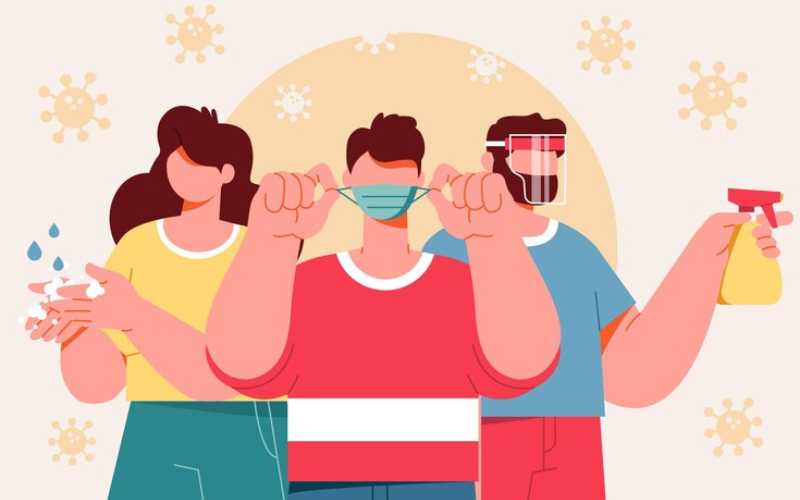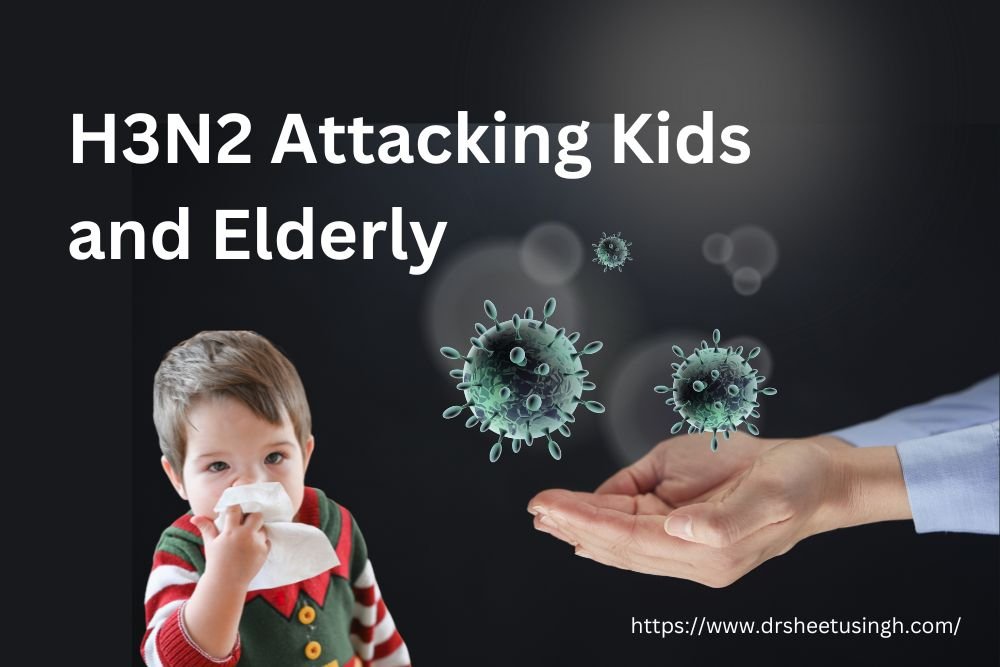Colds, flu and fever are the first illnesses to show up when the weather and climate change. H3N2 is one Influenza that has received a lot of recent attention. H3N2 is a non-human Influenza that normally circulates in pigs but can infect humans. The viruses known as “swine influenza viruses” commonly affect pigs. They are known as “variant” viruses when they affect people. A few reasons why H3N2 is spreading in India include low vaccination rates (for the flu vaccine) and high pollution. India experiences two peak flu seasons: one from November to February and one throughout the monsoon season. According to current research, H3N2 infects and harms persons over the age of 65 as well as children under the age of 5 years.
How Can You Catch H3N2 Flu?
H3N2 flu is spread and contagious through droplet infections like COVID-19 and other several seasonal flu. You can catch the virus by coming in touch with an infected surface and touching your eyes, face or mouth immediately. When you come into contact with an infected person, you run the risk of being sick as well. Once your symptoms flourish, they may last up to 5 or 7 days.
Symptoms of H3N2 Flu
Infection with the H3N2 virus typically lasts between five and seven days, although it can sometimes result in a severe cough that lasts up to three weeks. The symptoms of H3N2 flu are equivalent to other seasonal flu and include:
- Headache
- Stuffy or runny nose
- Chills
- Sore throat with cough
- Fever
- Body ache
- Diarrhea
- Fatigue
- Vomiting
- Minor congestion
How is H3N2 Flu Diagnosed?
If you suspect that you have H3N2, you should contact your healthcare provider for an evaluation. They might ask for an RT-PCR test to confirm the diagnosis. This test entails collecting a sample from your nose or throat and checking it for the flu virus. Dr. Sheetu Singh can diagnose the H3N2 flu due to common symptoms with other flu, they may recommend patients undergo lab tests to rule out any other illnesses common during the season.
How is H3N2 Flu Treated?
The treatment for H3N2 flu depends upon the individual’s severity and symptoms. H3N2 cases that aren’t difficult are handled the same as any other seasonal flu:
- Drinking enough fluids (soups, juice, water) to stay hydrated
- Getting plenty of rest
- Taking over-the-counter medications to help relieve headache, fever and body pain
In some cases of H3N2, Antivirals like Baloxavir, Oseltamivir and Peramivir may be given. Antiviral drugs can reduce the length of the flu and avoid complications when taken within 48 hours after the onset of symptoms. If you fit one of the following high-risk groups, get immediate medical attention:
- Children under 5 years of age
- Adults over 65 years of age
- Pregnant women
- Individuals with chronic medical conditions like pneumonia, asthma, diabetes, weakened immune system or heart disease.
Is There A Vaccine For H3N2 Flu?
Flu shots protect the general population from serious illnesses and their symptoms. Unfortunately, there is no specific vaccine to protect against H3N2 flu. The annual flu shot offers defense against three to four influenza virus strains (hence the terms trivalent or quadrivalent). However, these flu vaccines protect you more from the HIN1 viruses and influenza B viruses than the H3N2 viruses. Due to the H3N2 viruses’ propensity for genetic changes, which occur more frequently than those of other viruses, vaccination is less efficient in protecting against them.
What is the Outlook of H3N2 Flu After Treatment
Despite the rising cases of H3N2 flu, most people can recover at home with or without treatment from their physicians. The flu symptoms last for about a week or two, although a cough and fatigue may persist for an additional two weeks. The following signs may necessitate that you seek immediate treatment:
- Pressure or pain in the chest
- Difficulty in breathing or shortness of breath
- Confusion
- Severe or persistent vomiting
- Lightheadedness or dizziness
- Worsening of existing symptoms
Can H3N2 Flu Be Prevented?
Despite the lack of an H3N2-specific vaccination, we may still safeguard our loved ones and ourselves by taking the following precautions:
- Get a flu vaccination every year, preferably before winter arrives
- Wash your hands frequently with water and soap, especially after using the washroom, before touching and eating your mouth, face and eyes
- Wear a mask when going in a poorly ventilated indoor space or a crowded area
- During flu season, stay away from busy areas where the infection can swiftly spread
- Avoid interacting with sick people.
- Avoid taking Antibiotics without your doctor’s prescription
The H3N2 flu is a dangerous viral infection that can have substantial consequences for morbidity and death, especially in populations that are already at risk, such as the elderly and small children. You should stay home if you have the H3N2 flu to stop the virus from spreading. Following the fever’s resolution, it is advised to remain at home for at least 24 hours.


